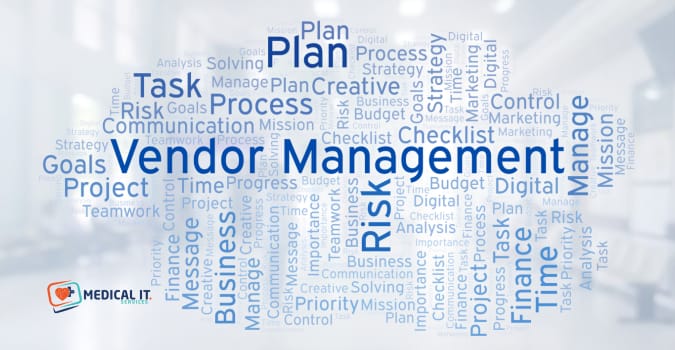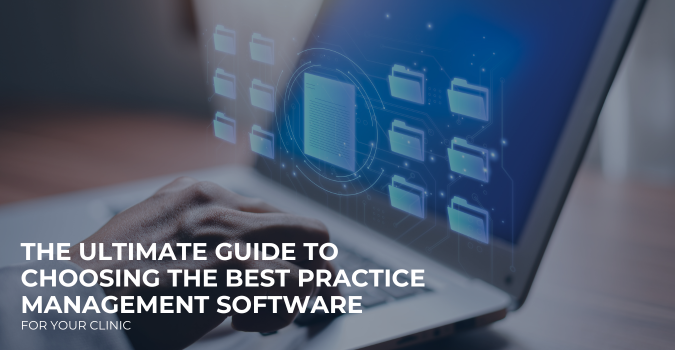In today’s fast-paced digital world, patients expect the same level of convenience and accessibility from…

How to Build a Strong IT Vendor Management Strategy
A well-designed vendor management strategy allows healthcare organizations to establish and maintain strong relationships with vendors, optimize costs, and ensure compliance with regulatory requirements. Healthcare organisations rely heavily on IT vendors to provide the necessary tools, solutions, and support to meet their business objectives. To ensure seamless operations and gain a competitive advantage, building a robust vendor management strategy is essential. In this article, we will explore the key steps to create a strong IT vendor management strategy, with a focus on optimizing IT Vendor Support.
Assessing Healthcare IT Needs and Objectives
The foundation of any vendor management strategy begins with a comprehensive assessment of the healthcare organization’s IT needs and objectives. Identify the critical areas where Healthcare IT Solutions can improve patient care, operational efficiency, and data security. Consider the challenges faced in managing medical records, patient billing, electronic health records (EHRs), and telehealth services. Align the organization’s long-term goals with its IT objectives to ensure that the chosen IT Vendor Support aligns with the overall healthcare strategy.
Selecting Healthcare-Focused IT Vendors
When building an IT vendor management strategy for healthcare, it is crucial to select vendors with a proven track record of providing IT services to the healthcare industry. Look for vendors who specialize in healthcare IT solutions, possess in-depth knowledge of regulatory compliance (such as HIPAA), and have experience in handling sensitive patient data securely. Healthcare-focused vendors understand the unique challenges and requirements of the industry, making them better equipped to deliver effective IT Vendor Support.
Prioritizing Data Security and Compliance
Protecting patient data is of paramount importance in healthcare IT vendor management. Ensure that selected vendors adhere to industry-standard security protocols and comply with data protection regulations. Perform thorough security assessments to gauge their ability to safeguard sensitive patient information from data breaches and cyber threats. A comprehensive approach to data security minimizes the risk of breaches and ensures patient trust in the healthcare organization.
Establishing Clear Expectations and SLAs
Clear communication and well-defined service level agreements (SLAs) are critical to a successful IT vendor management strategy in healthcare. Define specific expectations, response times, issue resolution timelines, and other performance metrics in the SLAs. These agreements ensure that the IT Vendor Support provided aligns with the healthcare organization’s needs and that vendors are accountable for their performance.
Cultivating Strong Vendor Relationships
Building strong relationships with vendors is vital for healthcare organizations to ensure reliable and efficient IT Vendor Support. Regularly engage in open and transparent communication with vendors, fostering mutual trust and understanding. Conduct periodic vendor reviews and feedback sessions to address concerns, acknowledge successes, and collectively work towards improvements. Strong vendor relationships facilitate collaboration and create a sense of partnership, enhancing the overall efficiency of IT operations.
Implementing Risk Mitigation Strategies
Healthcare vendor management must incorporate risk mitigation strategies to prepare for potential disruptions or service issues. Identify and assess risks related to vendor performance, financial stability, and the potential impact of system failures on patient care. Develop contingency plans to address these risks and ensure uninterrupted services. Regular audits and compliance checks help monitor vendors’ adherence to security standards and regulations.
Continuous Monitoring and Performance Evaluation
Continuous monitoring and performance evaluation are essential to gauge the effectiveness of the IT Vendor Support provided in the healthcare setting. Implement monitoring tools and performance metrics to assess vendor performance against SLAs and industry benchmarks. Regularly track response times, issue resolution rates, and customer satisfaction levels. Data-driven insights enable evidence-based decision-making to optimize vendor selection and retention.
Conclusion
A robust IT vendor management strategy is indispensable for healthcare organizations seeking to optimize their technology solutions. By defining clear objectives, conducting comprehensive vendor assessments, fostering effective communication, ensuring data security and compliance, negotiating fair contracts, and continuously monitoring vendor performance, healthcare providers can build strong and reliable vendor partnerships.
Streamline Your IT Vendor Management
MedicalIT.Services, a trusted and experienced IT service provider specializing in healthcare technology solutions, can be your strategic partner in navigating the complex landscape of IT vendor management. With their expertise in healthcare IT, they can help your organization implement the steps outlined in this article and tailor solutions to meet your specific needs.
Also Read:




